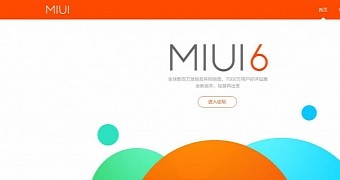Xiaomi is one of the fastest rising device makers coming out of China we have seen in the past few years.
The company makes smartphones, tablets and a bunch of other stuff like fitness trackers and routers. On top of that, Xiaomi develops its own firmware for handsets and tablets, which is dubbed MIUI.
And it seems that MIUI is fast to grow in popularity, as Xiaomi took to social media website Weibo (as seen at Gizmo China) to announce that it crossed over 100 million MIUI users worldwide (so not just China).
MIUI's grasp doubled since May 2014
That’s certainly quite exciting news, especially since most of the growth probably happened in the last 15 months or so.
Back in December 2013, Xiaomi posted that MIUI had 30 million users, while by May 2014 numbers had grown to 50 million. Now fast forward a few months to February 2015 and the numbers have doubled.
Xiaomi held a press conference in San Francisco where it revealed it would make an entry in the US market in a few months, although American customers won’t see any tablets and smartphones anytime soon.
The device maker plans to unveil MIUI OS in the country first and then offer the devices bundling MIUI for sale. Xiaomi is hoping customers will have time to consider the perks of this particular version of Android against consecrated variants such as TouchWiz or Sense UI.
In related news, the company has been quite busy as of late, as it recently unveiled two new smartphones, the Mi Note and Mi Note Pro.
Out of the duo, the Mi Note Pro is the most powerful arriving with a Snapdragon 810 processor and 4GB of RAM. The handset doesn’t ship yet, but when it does, it will probably be a big hit with consumers, especially since handsets with similar specifications will probably sell for a lot more.
Xiaomi may be making a skittish entry the US market for now, a market they have repeatedly said it is highly competitive, but maybe that’s a good thing. Being cautious certainly seems like a good strategy, especially when you’re up against the big boys (think Apple or Samsung).

 14 DAY TRIAL //
14 DAY TRIAL //